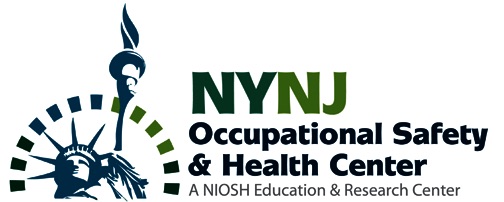Jim gave an great overview of the issues farmers face at work, as well as the operation he runs at his farm. We saw the milking operations and where the cows "hang out" and eat. The farm produces milk for many suppliers that ends up in our grocery stores. Jim discussed the issue of soil conservation and "no tilling" to ensure the soil has proper nutrients and reduces run off. Schrack Farms runs a methane recovery operation that provides energy for the farm, and produces enough energy to supply energy back into the grid. And we got to hang out with the cows. A very interesting tour!
Thursday, May 25, 2017
Schrack Farms - Loganton, PA
Our last stop on our Historical Perspectives on Occupational Safety and Health Tour was Schrack Farms, in Loganton, PA. They are a dairy farm with over 1,000 head of cattle. We were met by Jim Harbach, the owner of the farm. Jim is a 7th generation farmer of Schrack Farms.
Jim gave an great overview of the issues farmers face at work, as well as the operation he runs at his farm. We saw the milking operations and where the cows "hang out" and eat. The farm produces milk for many suppliers that ends up in our grocery stores. Jim discussed the issue of soil conservation and "no tilling" to ensure the soil has proper nutrients and reduces run off. Schrack Farms runs a methane recovery operation that provides energy for the farm, and produces enough energy to supply energy back into the grid. And we got to hang out with the cows. A very interesting tour!
Jim gave an great overview of the issues farmers face at work, as well as the operation he runs at his farm. We saw the milking operations and where the cows "hang out" and eat. The farm produces milk for many suppliers that ends up in our grocery stores. Jim discussed the issue of soil conservation and "no tilling" to ensure the soil has proper nutrients and reduces run off. Schrack Farms runs a methane recovery operation that provides energy for the farm, and produces enough energy to supply energy back into the grid. And we got to hang out with the cows. A very interesting tour!
Wednesday, May 24, 2017
Materion - Beryllium
Today we visited Materion, a multinational company
specializing in high performance engineered materials, specifically with
beryllium. Beryllium is used
industrially in three forms: as a pure metal, as beryllium oxide, and most
commonly, as an alloy with copper, aluminum, magnesium, or nickel. The products Materion produces are used in
the telecommunications, computer, automotive electronics, industrial
components, aerospace, defense, and appliance industries.
Our trainees were divided into 5 groups, each seeing a
different aspect of the processes at Materion.
Some saw how they created rod and tubes, and others how they made coils
of very thin beryllium alloys. This visit allowed our trainees to wear PPE, including powered air purifying respirators.
We thank Mike Berakis, the industrial hygienist, and the
entire Elmore facility staff for their hospitality, and providing such an
incredible learning opportunity for our trainees.
Tuesday, May 23, 2017
Ford River Rouge and GM Pontiac Stamping
This morning we visited the Ford River Rouge factory, the
historic factory where the assembly line for automobiles was started. The River Rouge factory produces 1,000 F-150
trucks every weekday (600 on the weekends).
They have incorporated many technological advances to improve worker
safety and health by using robots and other mechanical devices. We learned the history of the Ford
In the afternoon, we visited the GM Pontiac Stamping
Plant. Here we were able to discuss auto
manufacturing issues with the health and safety staff of the facility. We walked through the plant, seeing how the
steel is stamped to create the fenders, roof, and other parts of the cars.
Subscribe to:
Posts (Atom)


















